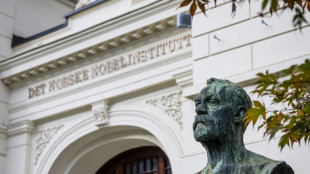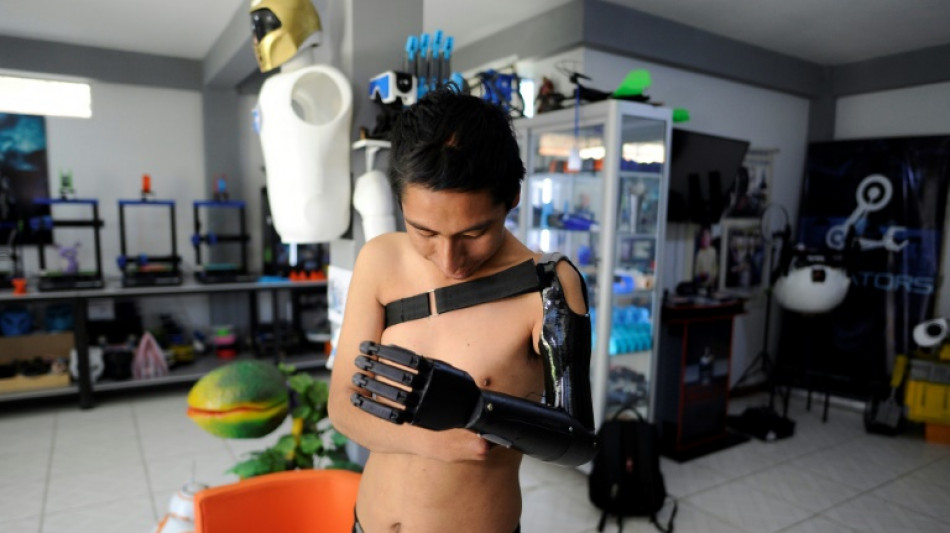
-
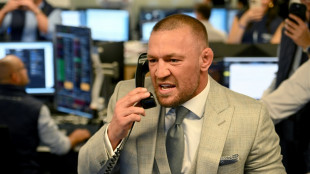 UFC star McGregor suspended 18 months over missed drug tests
UFC star McGregor suspended 18 months over missed drug tests
-
Trump talks up Canada trade deal chances with 'world-class' Carney
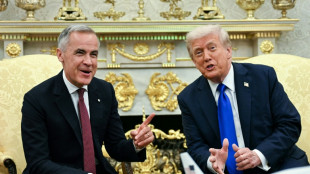
-
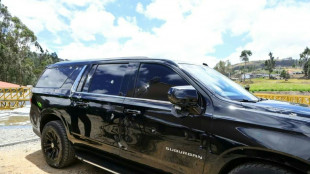 Ecuador president unharmed after apparent gun attack on motorcade
Ecuador president unharmed after apparent gun attack on motorcade
-
Lyon exact revenge on Arsenal, Barca thrash Bayern in women's Champions League

-
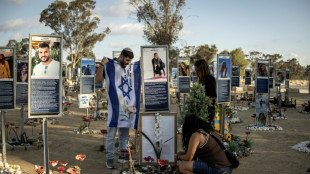 Trump says 'real chance' to end Gaza war as Israel marks attacks anniversary
Trump says 'real chance' to end Gaza war as Israel marks attacks anniversary
-
Gerrard brands failed England generation 'egotistical losers'

-
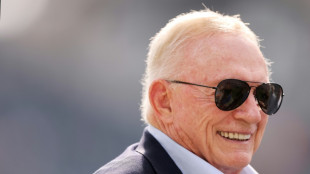 NFL fines Cowboys owner Jones $250,000 over gesture to fans
NFL fines Cowboys owner Jones $250,000 over gesture to fans
-
Bengals sign veteran quarterback Flacco after Burrow injury

-
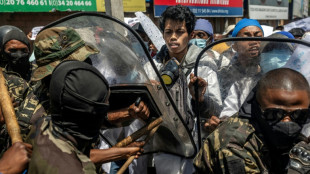 New prime minister inspires little hope in protest-hit Madagascar
New prime minister inspires little hope in protest-hit Madagascar
-
Is Trump planning something big against Venezuela's Maduro?

-
 EU wants to crack down on 'conversion therapy'
EU wants to crack down on 'conversion therapy'
-
French sex offender Pelicot says man who abused ex-wife knew she was asleep
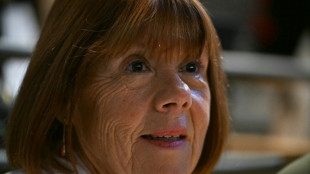
-
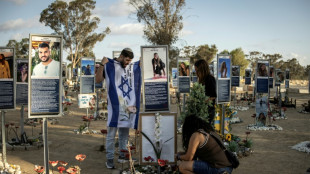 Trump says 'real chance' to end Gaza war as Israel marks Oct 7 anniversary
Trump says 'real chance' to end Gaza war as Israel marks Oct 7 anniversary
-
UK prosecutors to appeal dropped 'terrorism' case against Kneecap rapper
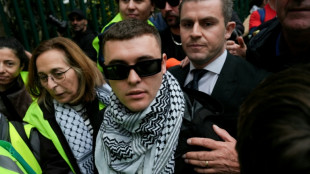
-
 Spain, Inter Miami star Alba retiring at end of season
Spain, Inter Miami star Alba retiring at end of season
-
EU targets foreign steel to rescue struggling sector

-
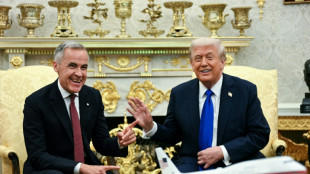 Trump talks up Canada deal chances with visiting PM
Trump talks up Canada deal chances with visiting PM
-
Knight rides her luck as England survive Bangladesh scare

-
 Pro-Gaza protests flare in UK on anniversary of Hamas attack
Pro-Gaza protests flare in UK on anniversary of Hamas attack
-
Top rugby unions warn players against joining rebel R360 competition

-
 Outcast Willis 'not overthinking' England absence despite Top 14 clean sweep
Outcast Willis 'not overthinking' England absence despite Top 14 clean sweep
-
Trump says 'real chance' of Gaza peace deal
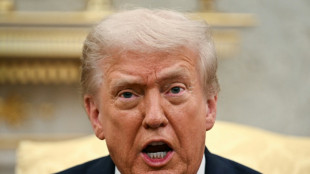
-
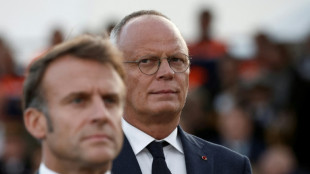 Macron urged to quit to end France political crisis
Macron urged to quit to end France political crisis
-
No.1 Scheffler seeks three-peat at World Challenge

-
 Canadian PM visits Trump in bid to ease tariffs
Canadian PM visits Trump in bid to ease tariffs
-
Stocks falter, gold shines as traders weigh political turmoil

-
 Senators accuse US attorney general of politicizing justice
Senators accuse US attorney general of politicizing justice
-
LeBron's 'decision of all decisions' a PR stunt
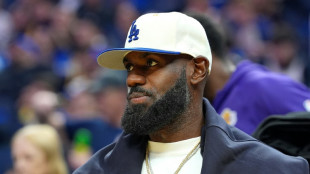
-
 Observing quantum weirdness in our world: Nobel physics explained
Observing quantum weirdness in our world: Nobel physics explained
-
WTO hikes 2025 trade growth outlook but tariffs to bite in 2026

-
 US Supreme Court hears challenge to 'conversion therapy' ban for minors
US Supreme Court hears challenge to 'conversion therapy' ban for minors
-
Italy's Gattuso expresses Gaza heartache ahead of World Cup qualifier with Israel
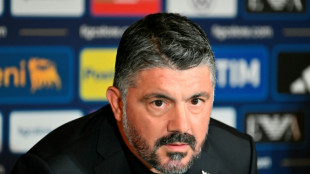
-
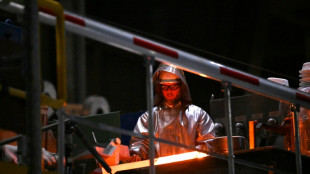 EU targets foreign steel to shield struggling sector
EU targets foreign steel to shield struggling sector
-
Djokovic vanquishes exhaustion to push through to Shanghai quarterfinals
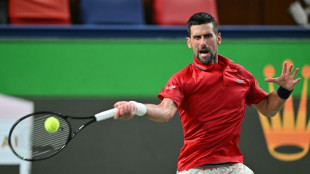
-
 Stocks, gold rise as investors weigh AI boom, political turmoil
Stocks, gold rise as investors weigh AI boom, political turmoil
-
Swiatek coasts through Wuhan debut while heat wilts players

-
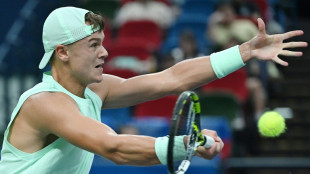 Denmark's Rune calls for heat rule at Shanghai Masters
Denmark's Rune calls for heat rule at Shanghai Masters
-
Japanese football official sentenced for viewing child sexual abuse images
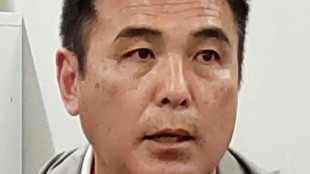
-
 'Veggie burgers' face grilling in EU parliament
'Veggie burgers' face grilling in EU parliament
-
Trio wins physics Nobel for quantum mechanical tunnelling

-
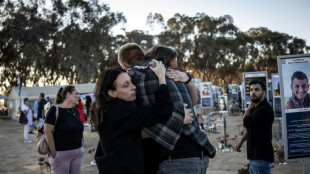 Two years after Hamas attack, Israelis mourn at Nova massacre site
Two years after Hamas attack, Israelis mourn at Nova massacre site
-
German factory orders drop in new blow to Merz
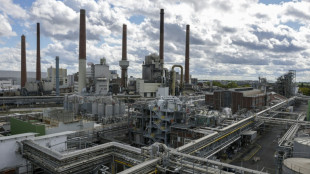
-
 Man City star Stones considered retiring after injury woes
Man City star Stones considered retiring after injury woes
-
Kane could extend Bayern stay as interest in Premier League cools

-
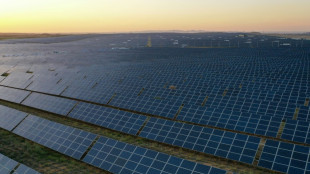 Renewables overtake coal but growth slows: reports
Renewables overtake coal but growth slows: reports
-
Extreme rains hit India's premier Darjeeling tea estates

-
 Raducanu retires from opening match in Wuhan heat with dizziness
Raducanu retires from opening match in Wuhan heat with dizziness
-
UK's Starmer condemns pro-Palestinian protests on Oct 7 anniversary

-
 Tokyo stocks hit new record as markets extend global rally
Tokyo stocks hit new record as markets extend global rally
-
Japan's Takaichi eyes expanding coalition, reports say


Bolivian toymaker restores limbs, dignity with 3D-printing
As a kid growing up in poverty in rural Bolivia, Roly Mamani built his own toys. Now a 34-year-old engineer, he 3D prints limbs for Indigenous compatriots scarred by life-changing accidents.
Mamani funds the endeavor with the money he makes from selling robotic toys he makes -- his other passion, which, after building his first remote-controlled toy car as a child, he never abandoned.
Surrounded by prostheses, plants and 3D-printed dinosaurs in his study, Mamani pores over an arm he is devising for a boy who lost his due to an electric surge.
It is his purpose, the engineer told AFP, "to improve people's quality of life."
The son of small-scale farmers, Mamani grew up in Achocalla, a community nestled between two lagoons some 15 kilometers (10 miles) north of the capital La Paz, verdant with pasture, vegetables and tubers.
With no money for toys, he started building his own play cars from plastic and cardboard at a young age, upgrading in primary school to a motorized version.
Before entering public university, Mamani worked for two years at an automobile workshop where he was exposed to "the first real machines I ever saw."
Ten years ago, he opened his own workshop in Achocalla to build robotic toys and educational aids.
"You could say I have all the toys I want now," he said.
Then everything changed when he heard about a rural man without hands and thought to himself: "I can make them for him."
In 2018, the toymaker of Achocalla set out to find life-improving solutions for other disfigured Bolivians with his 3D printers.
"Science is like a superpower. Robotics is a trend, but if it does not address important things, it doesn't mean anything," he mused.
- More than 400 made -
Against the background noise of printers at work, Mamani told AFP he can create six units a month.
Since 2018, "we have made more than 400 prostheses," he said.
Half were delivered free of charge or at the cost of production, funded by his robotics sales.
On average, a 3D-printed prosthesis in Bolivia costs about $1,500, more than five times the minimum salary.
A functional prosthesis -- the type that allows certain movements -- can cost as much as $30,000.
Yet the public health system does not cover prosthetics, in a country where some 36,100 people have physical and mobility problems, according to the state-aligned National Committee of People with Disabilities.
Mamani himself chooses the recipients of his donations from the countless requests he receives, including from abroad.
"The people in the most need are those who work precarious jobs without safety, which is why they have these accidents in which they lose a limb," he said.
- 'A blessing' -
One of their beneficiaries is 59-year-old Pablo Matha, who lost his vision and right hand seven years ago in a mining accident involving dynamite.
After that, "I went out every day to ask for some coins (on the street.) That's where my friend Roly and his brother found me," Matha told AFP.
Mamani's brother Juan Carlos is a physiotherapist, who helps with the patients' physical rehabilitation.
Matha said the prosthesis helped him regain his self-respect. He now plays the guitar to earn a living.
He said he used to "feel people looking at me and laughing. But now that I have the prosthesis... sometimes I feel that I am like any ordinary person."
Marco Antonio Nina, 26, was another recipient. As a teenager, working on a masonry project, an electric shock severed his left arm and stunted the right one.
"I like to sing, but without the prosthesis it hurt to hold the microphone... Now with this, it's a blessing," he said.
Mamani wants to use the recognition he has won for his work -- he has been awarded a US robotics scholarship -- to set up a rehabilitation center.
"I want to generate my own technology, I have to improve," he said.
C.Koch--VB

